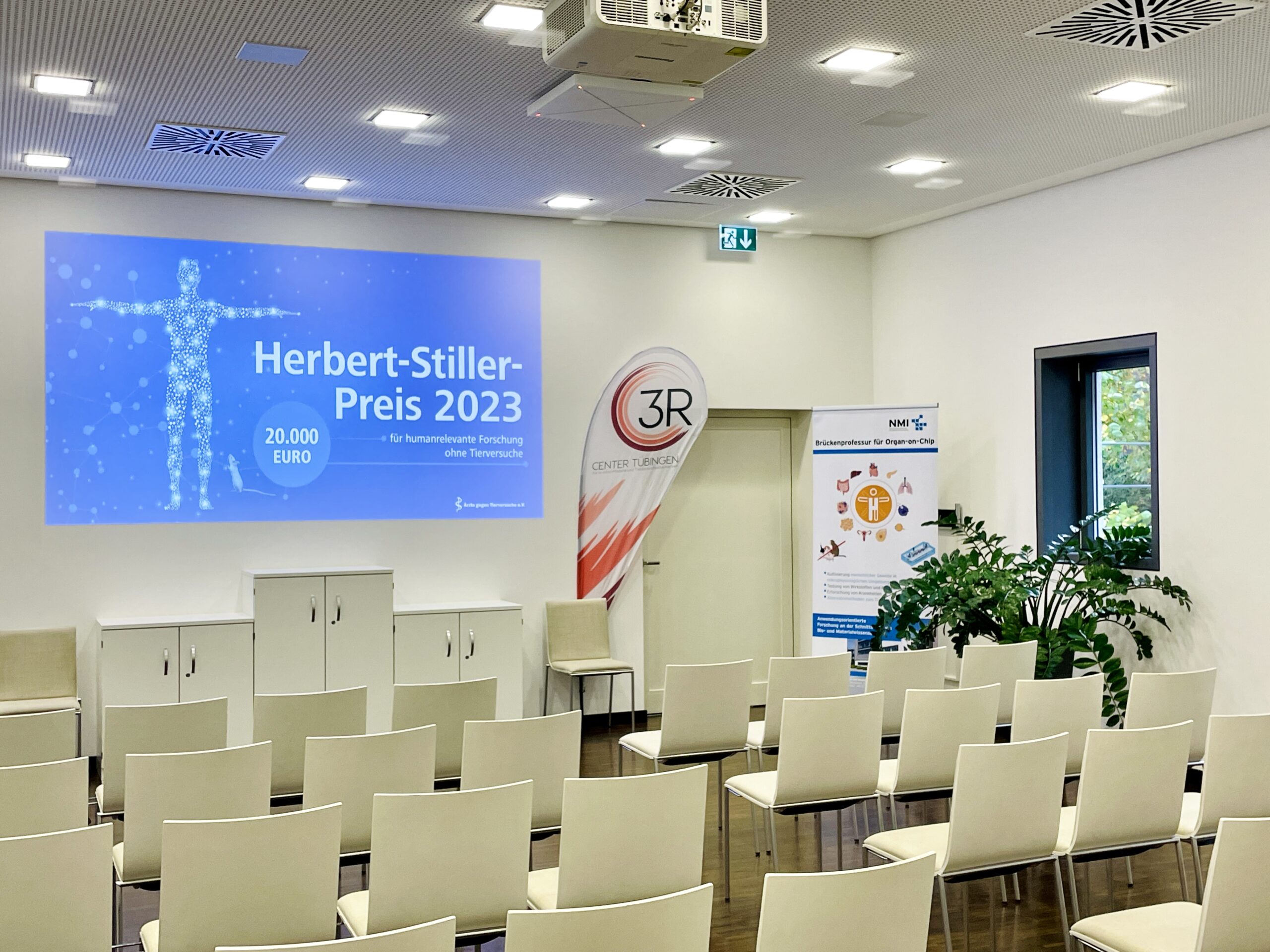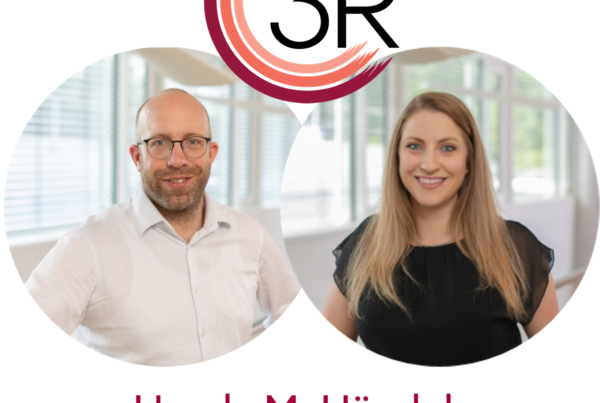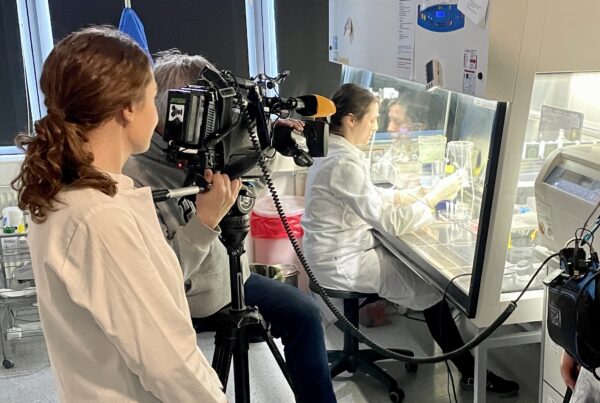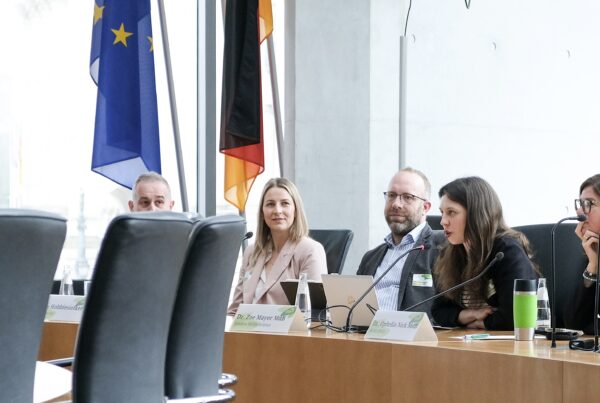For his groundbreaking breast Cancer-on-Chip model, which is exclusively composed of animal-free components, Peter Loskill was honored with the prestigious Herbert Stiller Prize by the Association “Doctors Against Animal Experiments e.V.” on October 12, 2023.
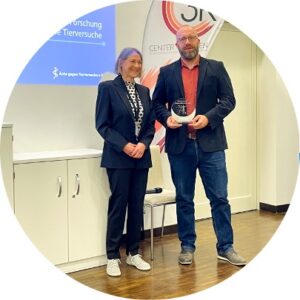
In the rapidly evolving field of Organ-on-Chip models, there is a growing emphasis on developing systems that rely solely on human cells and completely eliminate any animal-derived products. However, this presents unique challenges, as organoid and tissue cultures traditionally rely on the use of animal-derived additives.
With the aim of pioneering novel breast cancer therapies, Peter Loskill and his international, interdisciplinary µOrganoLab team have developed an innovative microphysiological breast cancer-on-chip model. This model utilizes human tumor organoids embedded in an artificial hydrogel that mimics the natural microenvironment of cells in the body. Surrounding the hydrogel is human adipose tissue, making this model not only a promising platform for in vivo testing but also aiming to eliminate animal components in in vitro research.
Human-relevant in vitro cancer models hold immense potential for advancing biomedical research and developing effective therapeutic approaches. Peter Loskill’s groundbreaking approach has been recognized by the Association “Doctors Against Animal Experiments e.V.” with the prestigious Herbert Stiller Prize, endowed with €20,000. This award, given every two years for human-relevant research without animal experiments, underscores the importance of shifting towards human-centered research methodologies and the significance of advanced in vitro models as alternatives and complementary methods to animal experiments.
The ceremonial award presentation took place on October 12, 2023, at the NMI Natural and Medical Sciences Institute in Reutlingen.
The recognition of the importance of µOrganoLab’s research and the 3R-Center Tübingen underscores the necessity of such human-centered research and the significance of advanced in vitro models for the development of new medical therapies.


